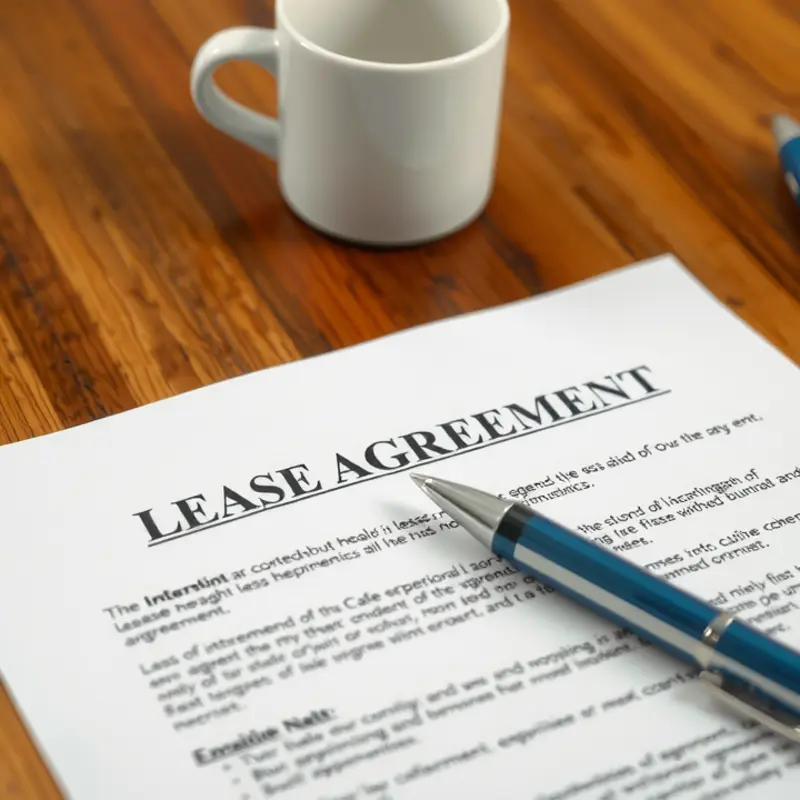Entering the rental market can be daunting, especially for young professionals, first-time renters, and families. With many aspects to consider—like lease terms, security deposits, and what to do if issues arise—knowing your legal rights as a renter can provide peace of mind. These rights are designed to protect you from unfair practices and ensure you receive a safe and habitable living space. Understanding the legal protections available to you as a tenant is crucial in avoiding potential pitfalls, especially in today’s fast-evolving rental landscape. Whether you are a student looking for your first apartment, a couple establishing a home, or a family seeking a suitable residence, gaining insight into tenant rights will empower you to navigate your leasing agreements with clarity and confidence. This guide will outline essential renter protections to make your experience smoother and more secure.
Understanding Your Tenant Rights

Renting a home comes with a set of fundamental rights designed to safeguard your well-being and privacy. One of the most crucial tenant rights is the right to a secure and clean living environment. Landlords are legally obligated to ensure your rental meets basic health and safety standards. This includes maintaining structural integrity, providing adequate heating and plumbing, ensuring electrical systems are safe, and addressing pest infestations. Should these essential standards be neglected, tenants may have legal recourse to demand repairs or terminate the lease without penalty.
Moreover, tenants have the right to privacy, meaning landlords cannot enter your rented property at any time without notice. Typically, landlords must provide a written notice, usually 24 to 48 hours in advance, except in emergencies where immediate access is necessary. Understanding your privacy rights helps establish a respectful tenant-landlord relationship and ensures your living space remains private.
Another vital aspect of tenant rights is receiving proper notice before any changes to your lease. Whether it’s a rent increase, an alteration to the terms, or non-renewal, landlords must notify tenants within a legally defined period, often 30 to 60 days. This timing allows tenants to make informed decisions about their housing situation, whether negotiating terms or seeking alternative accommodation.
Educating yourself about the rights landlords are legally required to provide can empower you to address issues proactively. In some states, these rights extend further into specifics, such as restrictions on landlord retaliation and protections against unjust eviction.
If you’re looking for deeper insight into the legal responsibilities shared between landlords and tenants, you can explore more practical advice and detailed explanations through this guide on landlord-tenant responsibilities.
Empowerment through knowledge is crucial for a secure renting experience. Recognizing your rights not only helps protect you when issues arise but also fosters a more confident and informed home search.
Navigating Lease Agreements

Signing a lease agreement is a crucial step in renting, binding both landlord and tenant to specific terms. Understanding these terms can empower renters to negotiate effectively and avoid pitfalls.
First, let’s consider lease length. Most standard leases are for a twelve-month period, but properties may offer more flexible terms such as six-month leases or month-to-month arrangements. While a longer lease might offer stability, shorter terms can be advantageous if you’re unsure of your long-term plans. Always confirm whether the rental agreement automatically converts to a month-to-month lease at the end of the term or if renewal discussions are necessary.
Deposit requirements are another critical component. Security deposits typically range from one to two months’ rent. These funds cover any potential damage beyond normal wear and tear. By law, landlords must return the deposit promptly at lease termination, usually within 30 days. Before signing, ask for details on what constitutes acceptable deductions and the process for deposit return.
Maintenance responsibilities often trip renters up. Standard leases should specify the tenant’s duties, like maintaining cleanliness and promptly reporting issues, alongside landlord obligations, such as repairing major systems and conducting regular inspections. To prevent disputes, request written clarification on who handles tasks like snow removal or lawn care.
Termination clauses require close attention. They detail conditions under which either party can break the lease. Some leases include a buyout clause, allowing tenants to pay a fee to terminate early without legal penalties. If a buyout isn’t present, consider proposing one, especially if unexpected relocations are possible due to work. Understanding your state laws regarding breaking a lease can also be invaluable. California, for example, requires landlords to make a reasonable effort to re-rent the unit if you leave early.
Beyond these components, renters should look out for other negotiable terms such as pet policies, parking provisions, and utilities. If you have pets, see if the lease specifies any breed or size limits. Pet-friendly agreements may require additional security deposits or monthly fees.
For further insight into dividing maintenance roles, check out this resource on landlord and tenant responsibilities, which can help clarify obligations before you sign.
Negotiating a lease isn’t merely about finding the lowest rent. By delving into and understanding each component, you can secure a more favorable and legally sound agreement that mitigates future disputes and aligns with your personal needs. Ultimately, being informed elevates your position in discussions with potential landlords and contributes to a smooth rental experience.
Final words
Your journey as a renter doesn’t have to be overwhelming. With a clear understanding of your rights and the ins and outs of lease agreements, you can confidently navigate the rental market. Remember to always read your lease thoroughly, ask questions, and know what legal protections you have. Being informed is your greatest asset when it comes to creating a safe and comfortable living environment. Embrace your renting experience with knowledge, and you will surely find a place that feels like home.









